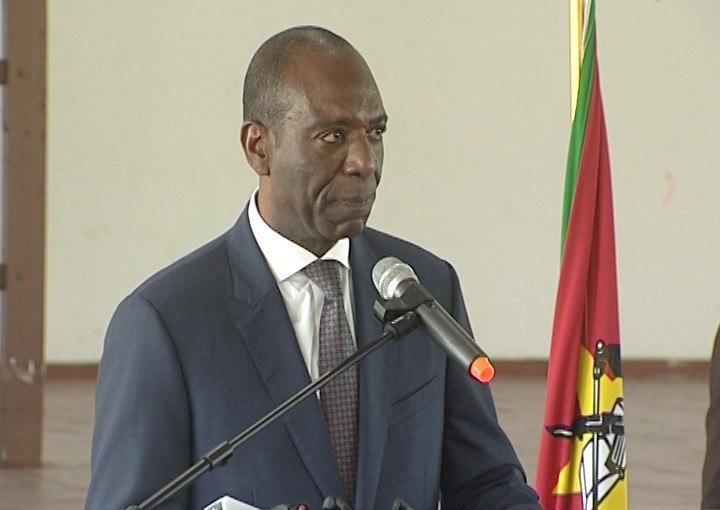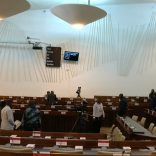Mozambique advocates greater Euro-African commitment to conflict prevention and counter-terrorism
Watch: Corruption a threat to needed reforms, says Prime Minister

TVM / Prime Minister Carlos Agostinho do Rosario
Mozambican Prime Minister Carlos Agostinho do Rosario on Friday declared that corruption is a threat to the reform of the public administration, with a negative impact on the business environment and on improving the provision of public services.
Speaking in Maputo at a meeting to mark International Anti-Corruption Day, Rosario warned of the damaging consequences of corruption because it reduces the state’s ability to satisfy the basic needs of citizens.
Preventing and fighting against corruption, he said, requires all sectors of society “to strengthen integrity and transparency in our behavior through changes in mentality and attitude”.
Rosario added that the fight against corruption occupies a prominent place in the government’s Plan of Action to implement its public administration reform strategy “which seeks to promote transparency in the management of local state bodies and municipalities, guarantee that all leaders and managers make the legally required declarations of their assets, and undertake civic education on preventing corruption”.
The director of the Central Office for the Fight against Corruption, Ana Maria Gemo, revealed that in 2015 prosecutors brought charges in 437 cases of corruption. Between January and October of this year, the figure was 382. She regarded this as a significant increase on the previous three years – charges were brought in 256 cases in 2012, 296 in 2013 and 239 in 2014.
The number of people detained for crimes of corruption and embezzlement between January and October was 147, she said – much larger than the figure of 61 detentions in 2014 and 59 in 2015.
“But while the numbers show there is an improvement in our performance”, Gemo added, “the truth is that you just have to walk around Maputo and many other parts of Mozambique to see that corruption is a problem and guides the lives of many citizens”.
“Although citizens protest against corruption, the fact is that they accept it in their day-to-day lives”, she said, “which shows the need to involve all of us to change mentalities, since that is he starting point for any institutional action to prevent and fight against this evil”.
The examples of corruption, she continued, range from the traffic cop who accepts a bribe of a few meticais from a motorist not to issue a fine, to a powerful public office-holder who benefits from illicit business deals to the detriment of the state. “The former subsists in this way, while the latter accumulates wealth expressed in cars and luxury houses, in Mozambique and abroad, bulging bank accounts, also here and abroad, and companies which perpetuate that wealth at the expense of the Mozambican people”.
Gemo pointed out that the criminal investigation of corruption cases, and trafficking in influence, “follows a paradigm that is quite different from traditional cases of criminal investigation”, and the current Penal Procedural Code, in force for over 40 years, “is no longer adequate for investigating corruption and all forms of economic and financial crime, and does not respond to current needs”.
The current rules do not establish the special regime for collecting evidence that prosecutors investigating corruption cases need, and so pertinent legislation should be passed bringing Mozambican law up to date, she urged.













Leave a Reply
Be the First to Comment!
You must be logged in to post a comment.
You must be logged in to post a comment.